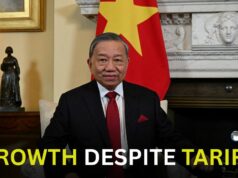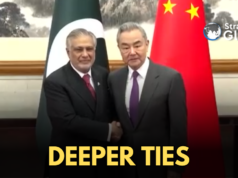Later this month it will be two years since the Russia-Ukraine war began. Although it suffered initial reverses, Russia now finds itself on a firm footing militarily. A slew of Western sanctions was meant to cripple the Russian economy and force President Vladimir Putin to do a rethink. Some thought he would. But what has confounded many economists is the resilience of the country’s economy.
And Putin isn’t relenting. “It seems we are being strangled and pressured from every side but we are the largest economy in Europe,” Russian news agency TASS quoted Putin as saying.
The confidence, perhaps, stems from the state of the economy. Last month, the International Monetary Fund (IMF) estimated that Russia would grow at 2.6 per cent this year. That’s up from 1.1 per cent, the figure it gave in October last year. The IMF’s growth outlook gels well with what the Russian government has forecast (2.3 per cent) and is starkly different from what the Russian central bank has put out (between 0.5 percent and 1.5 per cent).

As per Bank of Russia estimates, external debt at the end of last year stood at a little over $326.6 billion, that’s about 15 per cent less than the year before.

The IMF says Russia grew at 3 per cent last year, which was more than expected, due to high spending mainly on military-industrial complex and private consumption.
Putin seems determined to push ahead with the special military operation in Ukraine. Media reports suggest Russia’s estimated military expenditure this year would be nearly $140 billion, about 30 per cent more than last year. And that would be a significant boost to the war economy.
Both internal and external factors have contributed to Russian resilience to Western sanctions, Sergey Markov, former adviser to President Putin, told Anadolu. The country’s natural resources—it has or extracts reserves of almost all natural resources—are a factor. It has well developed industries in key economic sectors and can essentially take care of almost everything that it needs. The agriculture sector produces enough food to feed Russians and also to export. The country’s population makes it a lucrative market so far as domestic consumption goes.
“Russia has its own well-developed financial system, which ensured the circulation of money flows when the country was cut off from global payment systems,” he said.
Oil and gas revenue is a major driver of the economy even though the G7 imposed a price cap and the European Union banned oil imports from Russia. Ever since, China and India have been major buyers—almost 3.5 million barrels a day last year, as reported by Bloomberg. And much of the money was routed through a shadow fleet to evade sanctions.
Inflation (over 7 per cent) is way above the central bank’s target of 4 per cent. There’s hope that things would look up by the end of this year. If it doesn’t, as the defence forces bombard their way into ‘enemy’ territory, the average Russian will have to shell out more.
At six feet and over, cool, calm and always collected. Never a hair out of place. He is the high priest of editorial facts, grammar is his baby and headlines are meat on the bone. Loves samosas and cricket, tracks Twitter and when in his cups, nothing better than Jagjit Singh’s ghazals.





